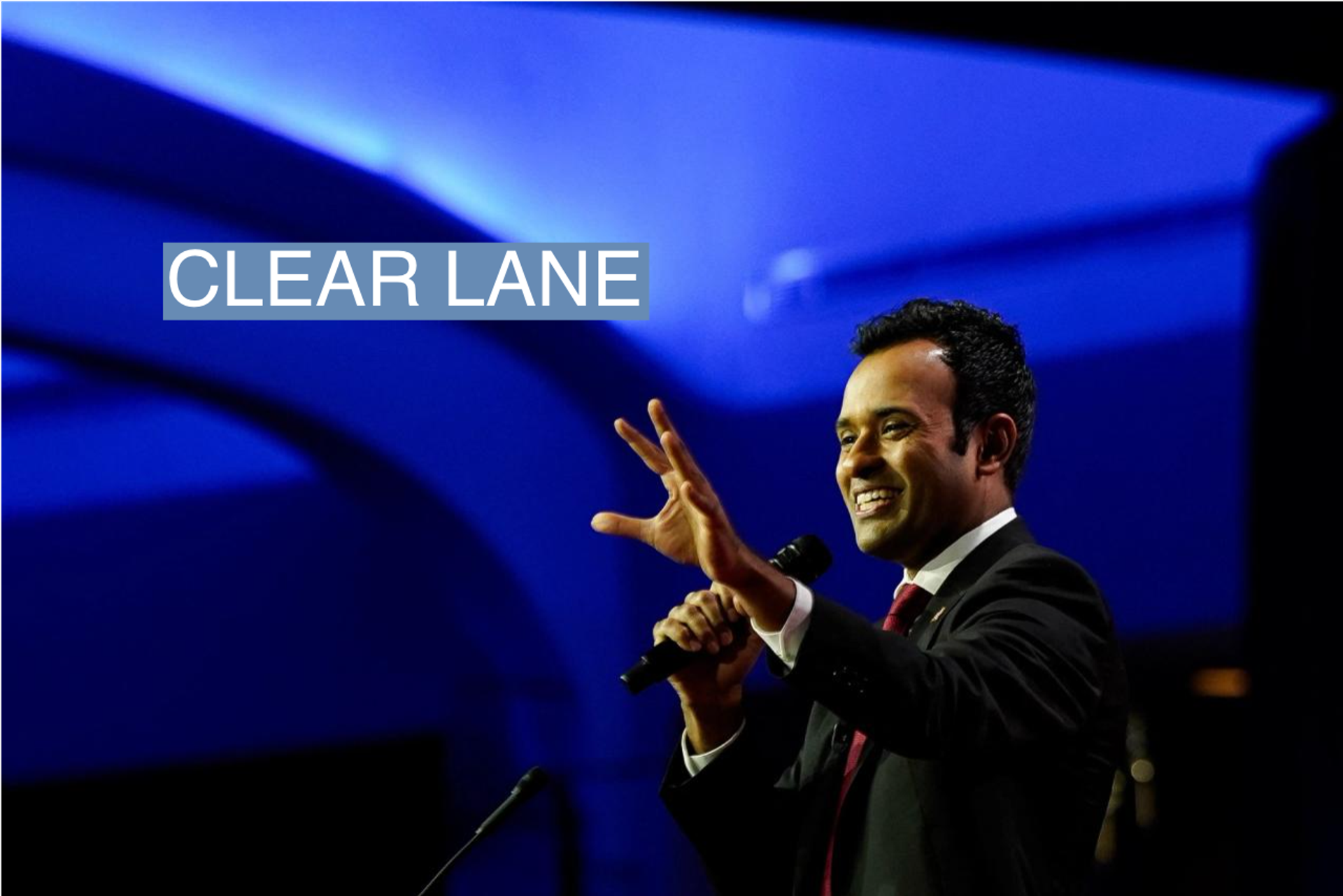The News
Vivek Ramaswamy, the political “outsider” of the 2024 race, wasn’t even registering in national polls when he first announced his candidacy in February. Now, he’s creeping up to third place in some surveys — beating out veteran politicians like Mike Pence and Nikki Haley.
That success comes with more scrutiny — he’s faced questions about his embrace of Trump after criticizing his “abhorrent” behavior following Jan. 6, and Axios reported the drug company he founded now includes a nonprofit arm that aims to increase “the racial and gender diversity of pharma industry leadership” — but it’s largely coming from popular Twitter personalities and the press. With the exception of some minor Twitter scuffles, few campaigns have engaged with Ramaswamy even as they’re bunched together in the polls. Opposing candidates just don’t seem to publicly care much about the “CEO of anti-woke.”
The View From The 2024 GOP Field
So why the shoulder-shrugging about Ramaswamy’s rise? It’s pretty simple: His rivals don’t think it’ll last.
“Vivek is like the fajitas that go by you at the restaurant,” one advisor on a rival campaign told Semafor. “They make noise, look exciting, and come on the fun plate. But if you order it, it’s too much, too annoying to assemble, and you wish you just ordered tacos.”
Another advisor on a rival campaign noted that Ramaswamy has “barely raised any money outside of what he donated himself,” and predicted the 37-year-old’s campaign “will fizzle out” — adding he’d ultimately see success in the form of “increased book sales and inflows into his investment products.” Many assume he’s running to raise his profile, especially with Trump’s MAGA base, either for his business ventures, a future run elsewhere, or a cabinet slot in the next Republican administration (which he denied this week). They are also skeptical of his national polling, saying his numbers look less impressive in early states that count.
The View From Vivek Ramaswamy
Ramaswamy appeared surprised to hear his opponents’ dismissiveness, telling Semafor that he thinks these takes are “insecure.” He also suggested his opponents have in fact “invested in heavy amounts of opposition research shopping” given his increasingly tough media coverage, and argued the two candidates who will ultimately be relevant to the Republican party are himself and Trump.
“I started at 0.0%. I’m now in third place in the national polls. And frankly, I think we’re just getting warmed up. The funniest part of this story is that we’re not even spending real money on advertising yet,” Ramaswamy said. “In some ways, if you go back and match up the words to what the other professional politicians said about Donald Trump last time around — Jeb Bush, Scott Walker — the things they were saying about Donald Trump last time sound exactly like what the Jeb Bushes and Scott Walkers of this race seem to be saying the same around as well.”
Shelby’s view
Ramaswamy is still an extreme longshot to win the Republican nomination, but he’s putting points up on the board — something that few rivals can say at this stage in the race. And dismissing anyone after Trump’s surprising 2016 rise seems like a risk (even setting Trump aside, outsider candidates like Herman Cain and Dr. Ben Carson also briefly reached the top tier in their runs.) At some point, 2024 candidates may find ignoring Ramaswamy is no longer an option.
Voters I’ve spoken to consistently come away from his events and speeches surprised by how much they like him. While most remain undecided as to who they’ll eventually vote for, it’s significant that he’s been so well-received at events in early voting states. After the Iowa Tucker Carlson show, a.k.a. the Family Leadership Conference, almost every voter I spoke with named Ramaswamy first as the candidate they were most impressed with onstage.
Notable
- Anti-woke politics may play well in the GOP primary, but it’s not clear how viable they are as a business model. Semafor’s Liz Hoffman reported this week that the investment firm Ramaswamy co-founded, Strive Asset Management, is dialing back its culture war rhetoric amid concerns it’s alienating potential clients.
